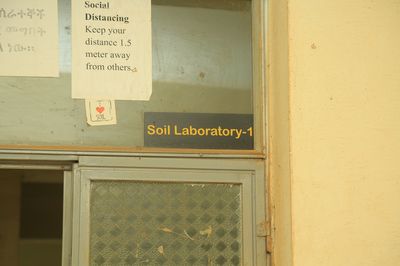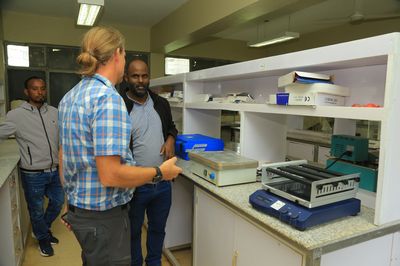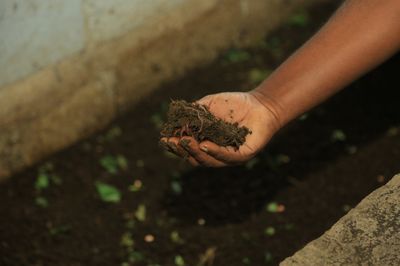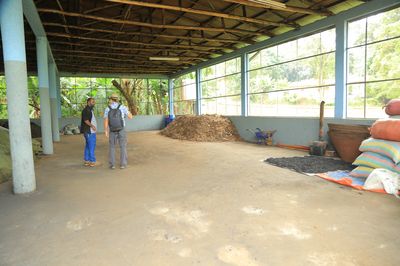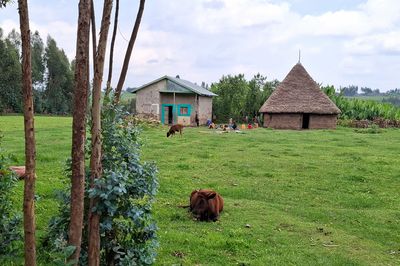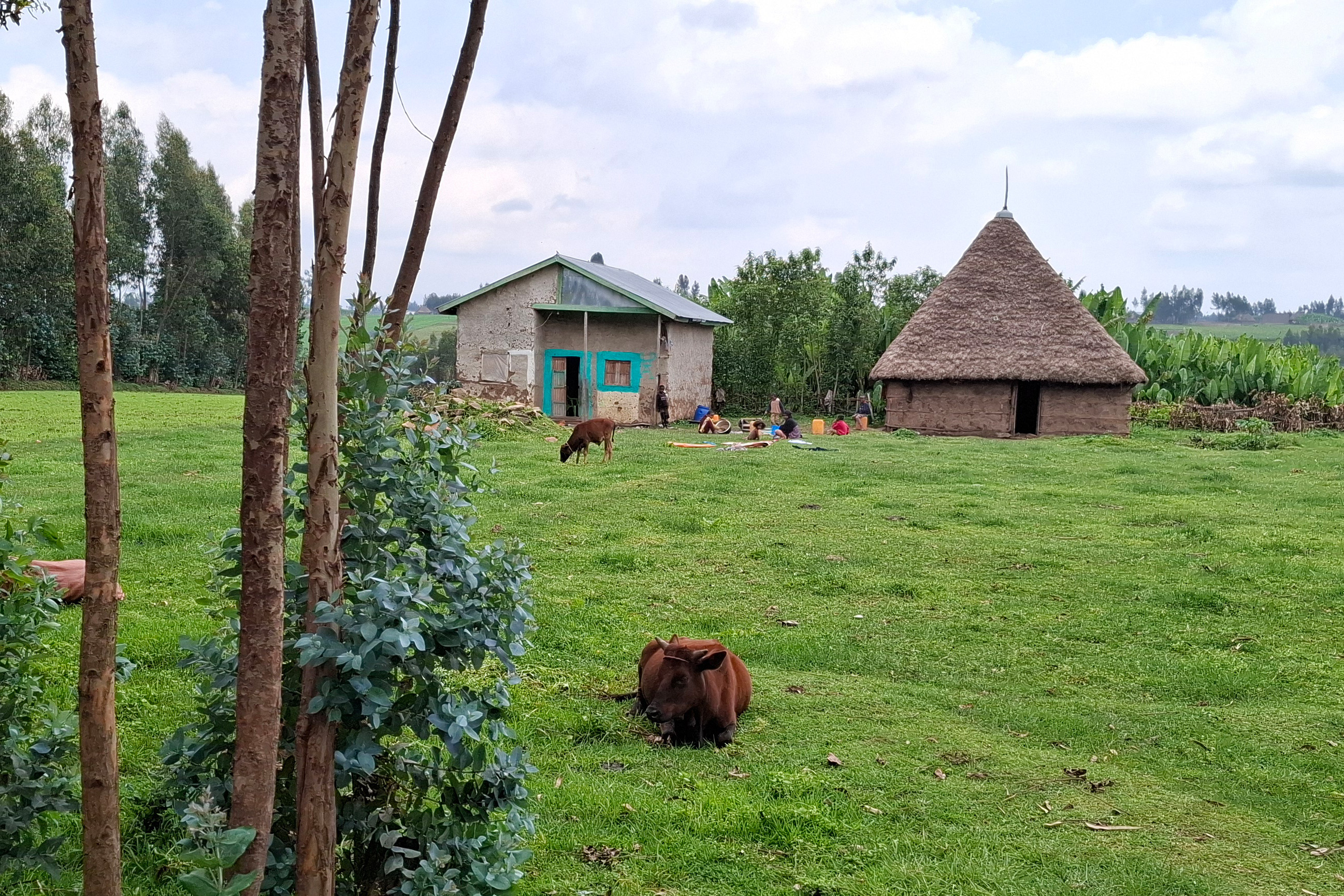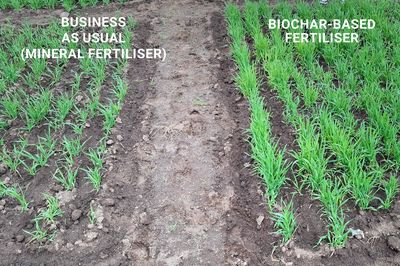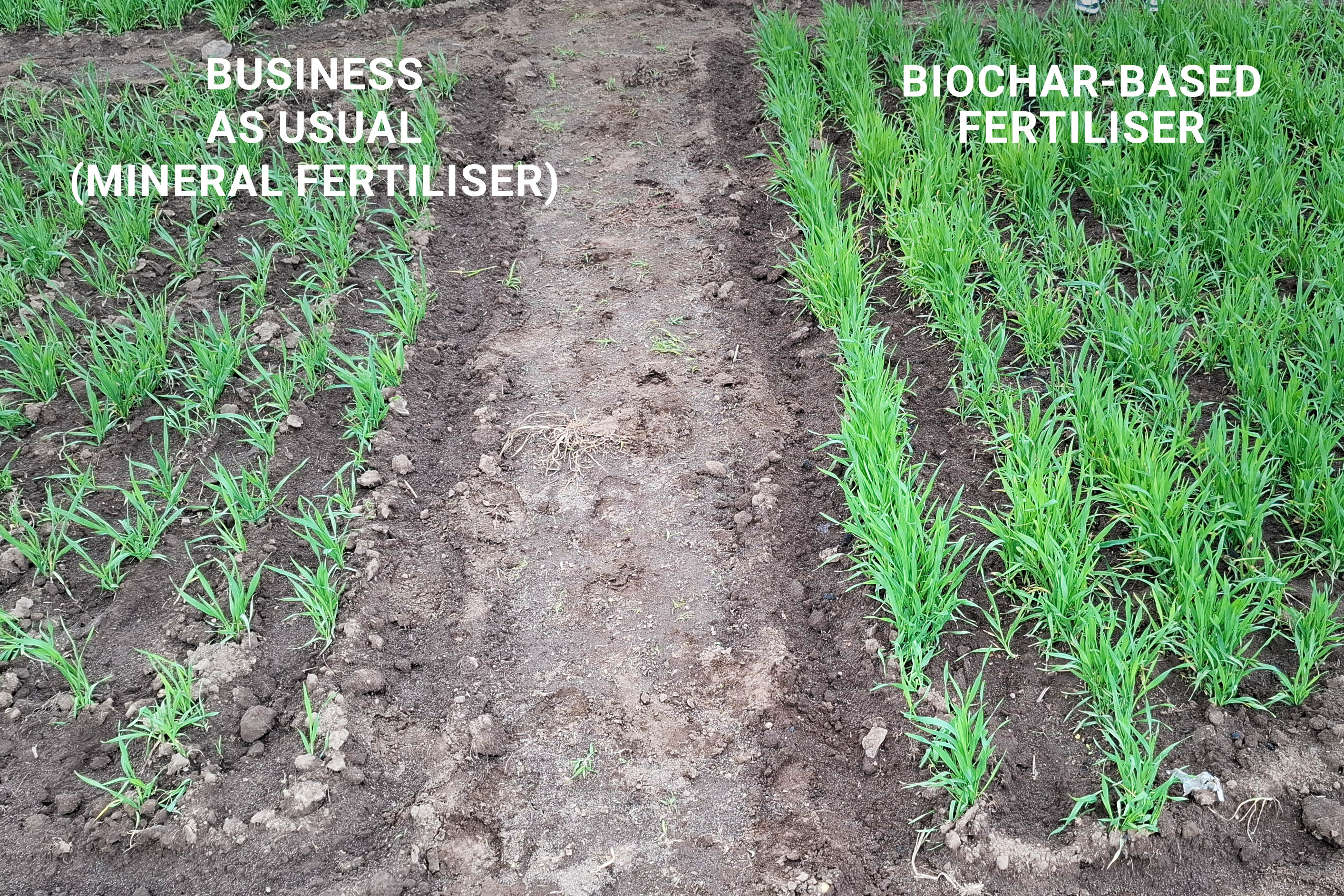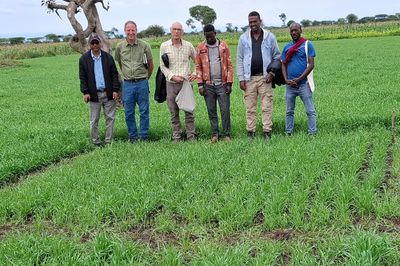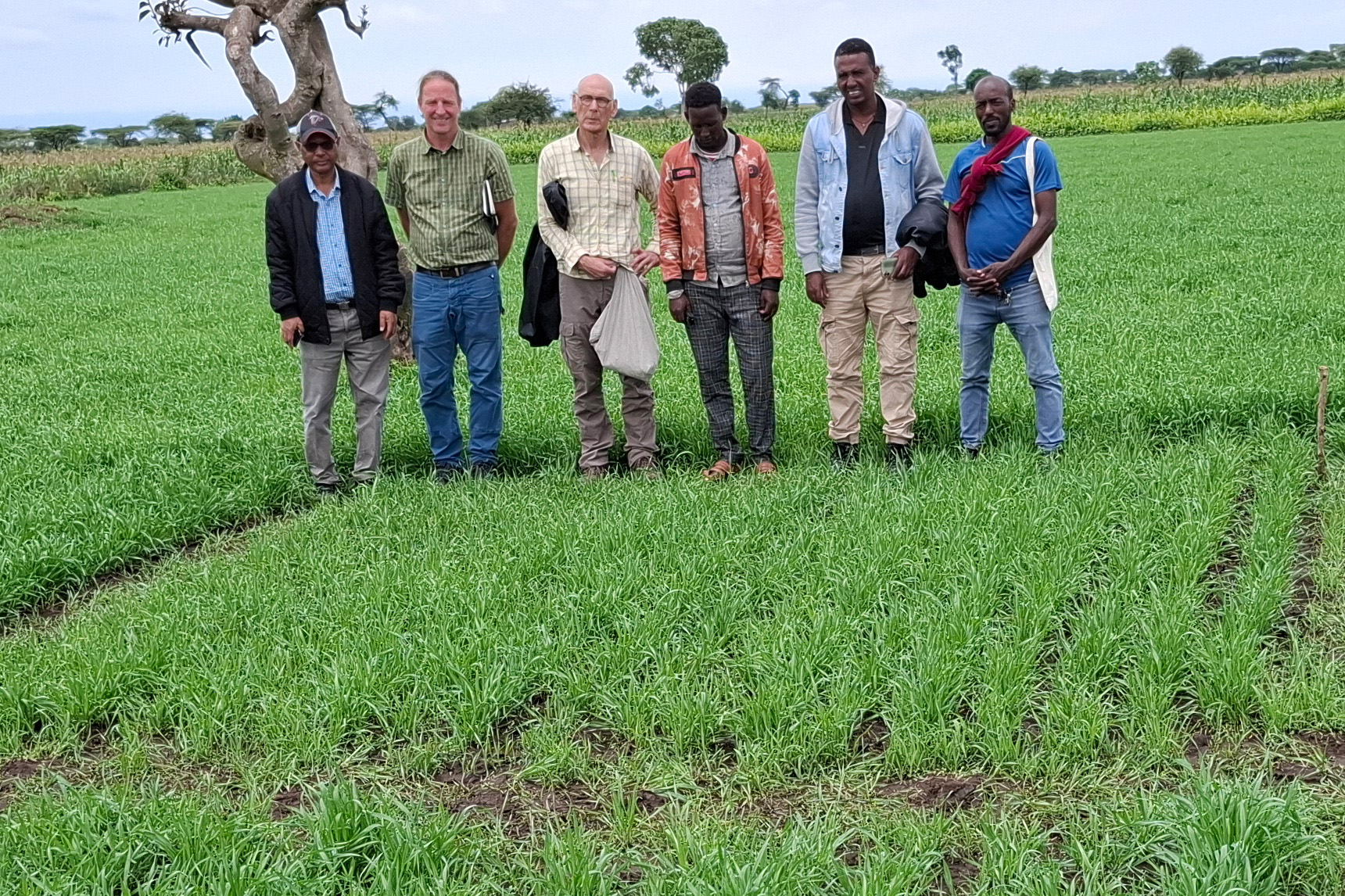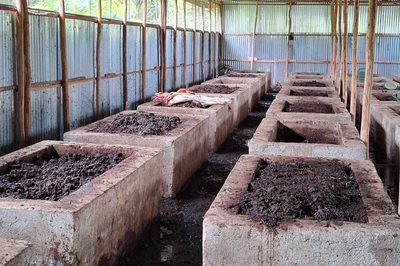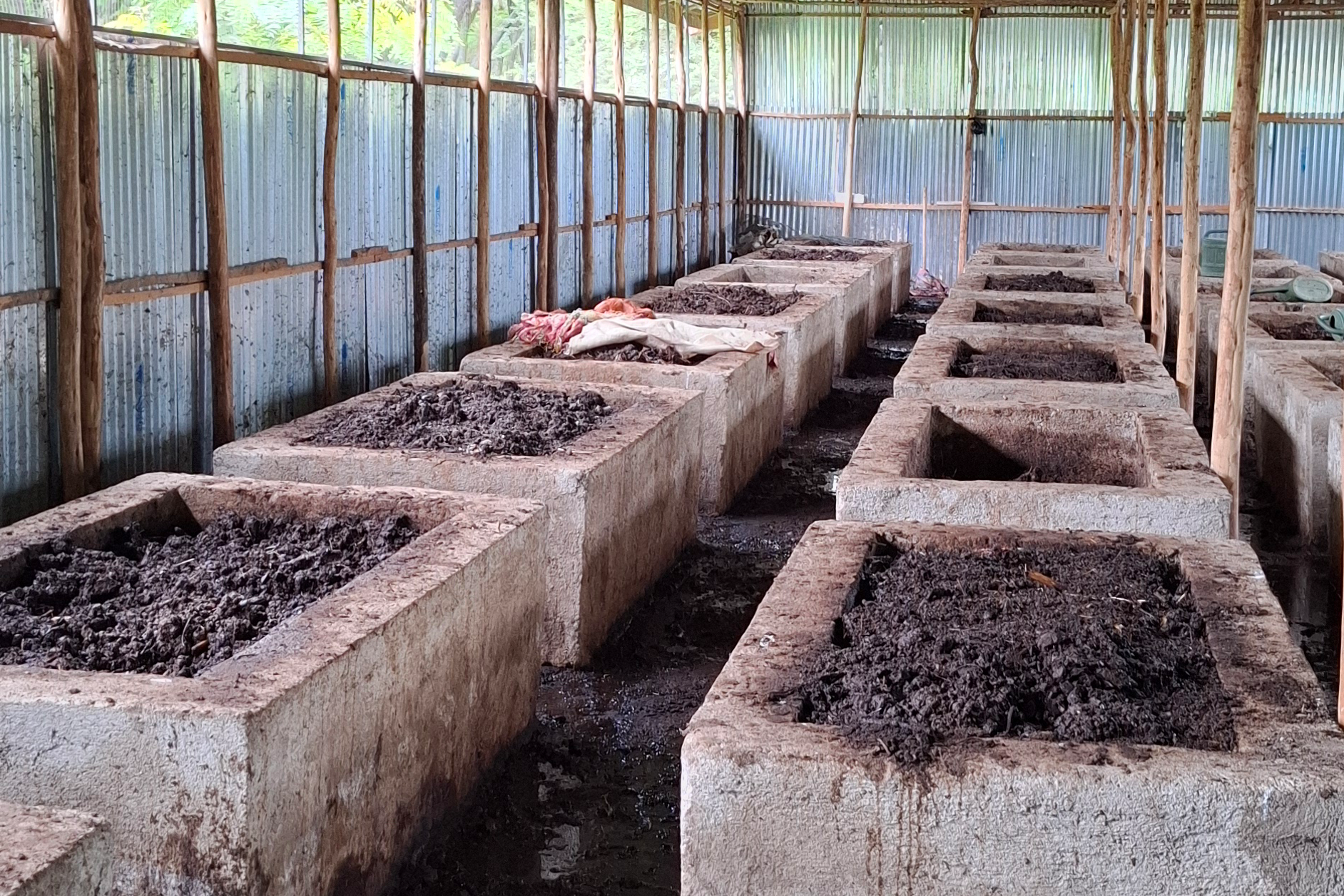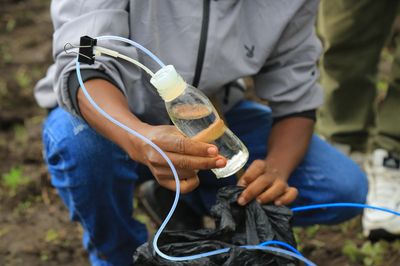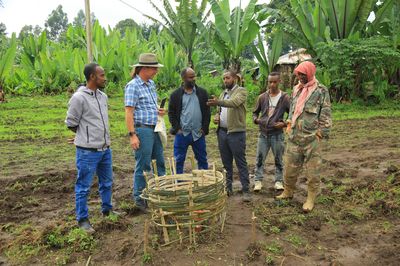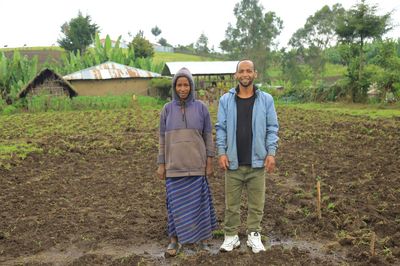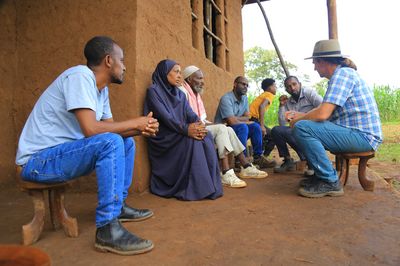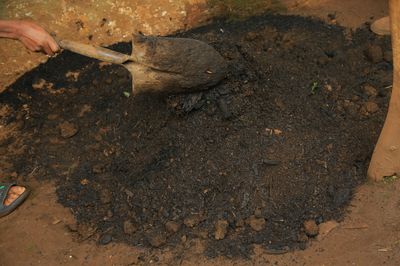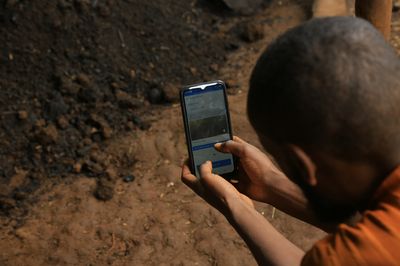Soil monitoring in Oromia: Biochar works
21.08.2025
From 5 August 2025 to 14 August 2025, Dr Burkhard Wilske and Dr Konrad Siegfried were once again travelling in the Ethiopian highlands to observe the current status of soil monitoring.Soil monitoring is carried out by the Soil Research Centre Batu, Ziway (IQQO), headed by Tilahun Abera, and by the University of Jimma, College of Agriculture and Veterinary Medicine, Prof. Abebe Nigussie and Prof. Milkiyas Ahmed, on 12-13 plots each. The work of the Ethiopian partners is supported by the two DBFZ researchers and Prof. Dr. Bruno Glaser (University of Halle-Wittenberg) with technical expertise, training and the establishment of additional laboratory capacities.
After a successfully finalized European tender process, analytical equipment for expanded soil and biochar analysis is now being purchased. During their visit, the two DBFZ experts verified successful completion of installation prerequisites to enable seamless installation, initial operation and subsequent utilization of the new equipment. The latter will be accompanied by capacity building and training again supported by Prof. Glaser. Trainings involved the operation of an atomic absorption spectrometer and standard preparations for different analytical procedures. The ultimate goal is to establish EBC aligned testing services for biochar at Soil Research Centre Batu and expanded capacities for soil analysis in the lab of the College of Agriculture and Veterinary Medicine at Jimma University.
A total of 25 fields in the Ethiopian mid- and highlands, some with different soil types, are being sampled. The parameters determining soil quality that are being measured include organic carbon, pH value, nutrient content (N, P), cation exchange capacity and nutrient ion concentrations dissolved in leachate. The necessary soil and leachate samples will be taken during at least two to three growing seasons (July-October/November) between 2024 and 2026. In addition, crop yields and root biomass of the wheat grown on the test fields will be determined and plant samples analysed. The investigations will be carried out under realistic conditions on the fields of local farmers.
They first visited the ETH Soil project partners at the Soil Research Centre in Batu and the farmers involved in the project, on whose fields realistic experiments with biochar-based fertilisers are being conducted. The test fields in the African Rift Valley (Oromia region, Kombolcha and Kofele woredas), which have a mostly relatively dry and hot climate, are located at an altitude of approximately 1,600–2,500 metres above sea level. On most fields where wheat is grown from July to around November, it was found that biochar-based fertiliser leads to harvest results that are equally satisfactory or even better than mineral fertiliser and, in some cases, significantly improves soil quality.
In the second study area south of the university town of Jimma, about 300 km further west halfway to the South Sudanese border in Woreda Dedo (approx. 1,700–3,000 m above sea level), the use of biochar also yielded very positive results, with harvests roughly equivalent to those from mineral-treated soils.
During the visit to the fields, numerous discussions were held with farmers thanks to the support of partners from the University of Jimma, Institute of Agriculture and Veterinary Medicine (Prof. Dr. Abebe Nigussie, Prof. Dr. Milkiyas Ahmed). The farmers are very positive about the use of biochar-based fertiliser and some of them would like to produce biochar themselves in the future in order to become financially independent of mineral fertiliser, which has become very expensive (price today approx. 50 €/100 kg, 1995: 0.3 €/100 kg). The C-Sink certification process initiated by ETH-Soil further contributes to broadening the use of biochar-based fertilisers. In the village of Sito, local farmers demonstrated the production of biochar and its mixing with compost and documented the process in accordance with the C-Sink certification requirements using a mobile app (PlantVillage).
Overall, the trip yielded very promising results from the soil tests and beyond. The transfer of valuable knowledge on biochar production, composting, the construction of production and storage facilities, and the expansion of laboratory capacities for soil testing and other analyses has been largely implemented. Together with the publication of the results of the field studies as a scientific basis, the establishment of an Ethiopian certification laboratory for biochar, and the development of farmers' capacities for the sustainable and widely accepted use of biochar-based fertilisers in Ethiopia and other African countries, this can lead to further progress.
